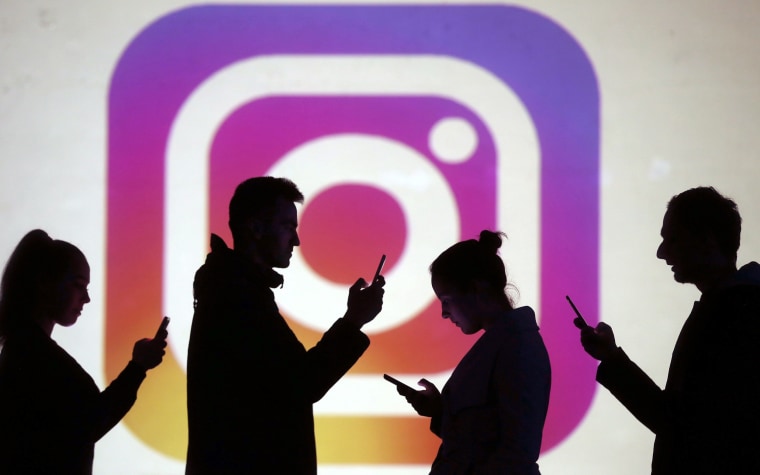SAN FRANCISCO — Instagram announced Wednesday that it will now require birthdates from all new users, a significant shift from its previous system that only asked users whether they were over 13 years of age.
However, the company will not require users to provide any documentation demonstrating that their birthday is accurate.
The move paves the way for the company to start offering advertising to companies that sell age-restricted goods, including alcohol.
Instagram will also soon allow all users to block direct messages from people that they do not follow, a move that attempts to help Instagram users stave off unwanted and inappropriate messages.
“It is critical we get this right and figuring out how to do this accurately — without, for example, excluding large numbers of users who may simply be unable to prove their age — is difficult and involves trade-offs,” Stephanie Otway, an Instagram spokesperson, emailed, adding that collecting identity documents is practically impossible for a platform with a billion monthly active users.
These modifications come a month after NBC News reported how Instagram had allowed people under 18 to expose their personal email addresses and phone numbers if they had converted their accounts to a “business” profile, despite not requiring any evidence of being an actual business.
The policy change comes as family safety groups in the United States, Britain and elsewhere have criticized the app for exposing children to inappropriate material and pushed for the passage of child safety and data privacy regulations.
Some children’s privacy experts say that while Instagram’s efforts are a good first step, they do not go far enough.
“However, it does not replace a requirement to remove accounts that clearly belong to underage users,” Linnette Attai, a privacy consultant and former vice president at Nickelodeon, said in an email.
Lindsey Barrett, a staff attorney and teaching fellow at Georgetown law school’s technology clinic, noted that Instagram’s efforts are unlikely to succeed.
“As for asking people for their age when they sign up, we've seen with every online service that's ever tried it that age-gating is not an effective strategy to keep kids out,” she emailed. “Assuming that kids won't lie about their ages won't keep them from signing up for Instagram, so I'm not sure what the company believes this change will accomplish.”
The birthdate requirement is the latest step Instagram has taken to move away from long-standing principles such as anonymity that had distinguished it from Facebook’s namesake app.
“Understanding how old people are is quite important to the work we’re doing, not only to create age-appropriate experiences but to live up to our longstanding rule to not allow access to young people,” Instagram’s head of product Vishal Shah said in an interview with Reuters.
He declined to specify age-based features in testing, but said age could be the basis for recommended privacy settings or in-app education about staying safe online. Birthdates will not be visible to other users.
In addition, Instagram will introduce in the coming weeks options for users to block messages from people they do not follow and for both businesses and popular users who are known as “creators” to more easily restrict minors from viewing their posts, Shah said.
Scrutiny of Instagram increased as it overtook Facebook’s main app in popularity among teens and young adults and became a leading contributor to Facebook’s revenue growth.
No verification
Instagram will not verify birthdates because teens often cannot prove their age, and it will still be left without birthdays of some existing users. Instagram expects most people will be honest about birthdates and said artificial intelligence could eventually aid verification.
Until now, Instagram required birthdates only in limited circumstances.
Users who had merged their Instagram profile and Facebook account, which requires a birthdate to create, turned over the data. Minors in the European Union over the last 18 months also had to submit birthdates so the company could comply with the region’s new data privacy law, known commonly as GDPR.
The existing birthdays, along with some rough analysis by workers poring over posts mentioning “happy birthday” and other terms, has helped Instagram train machine-learning software that predicts a user’s age and gender. The automated prediction also takes into account the variety of posts someone makes and the hashtags used.
Instagram employs its predictions to understand usage patterns by age and gender. But Shah said Instagram is reluctant to use predictions to personalize features or determine whether someone is lying about their age because of reliability and transparency concerns.
The forthcoming birthdate data will help improve accuracy, Shah said.
Shah told Reuters that it’s important for Instragram to use people’s explicit birthdate input “for now, but that might change.”
Current users who have not linked their Instagram and Facebook accounts will be able to add their birthdates starting Wednesday, but the company is still debating whether it would be too intrusive to make it mandatory, Shah said. Instagram knows whether some of those users are adults, for instance, because it asks them to say so before looking at profiles of alcohol and sexually explicit businesses.

